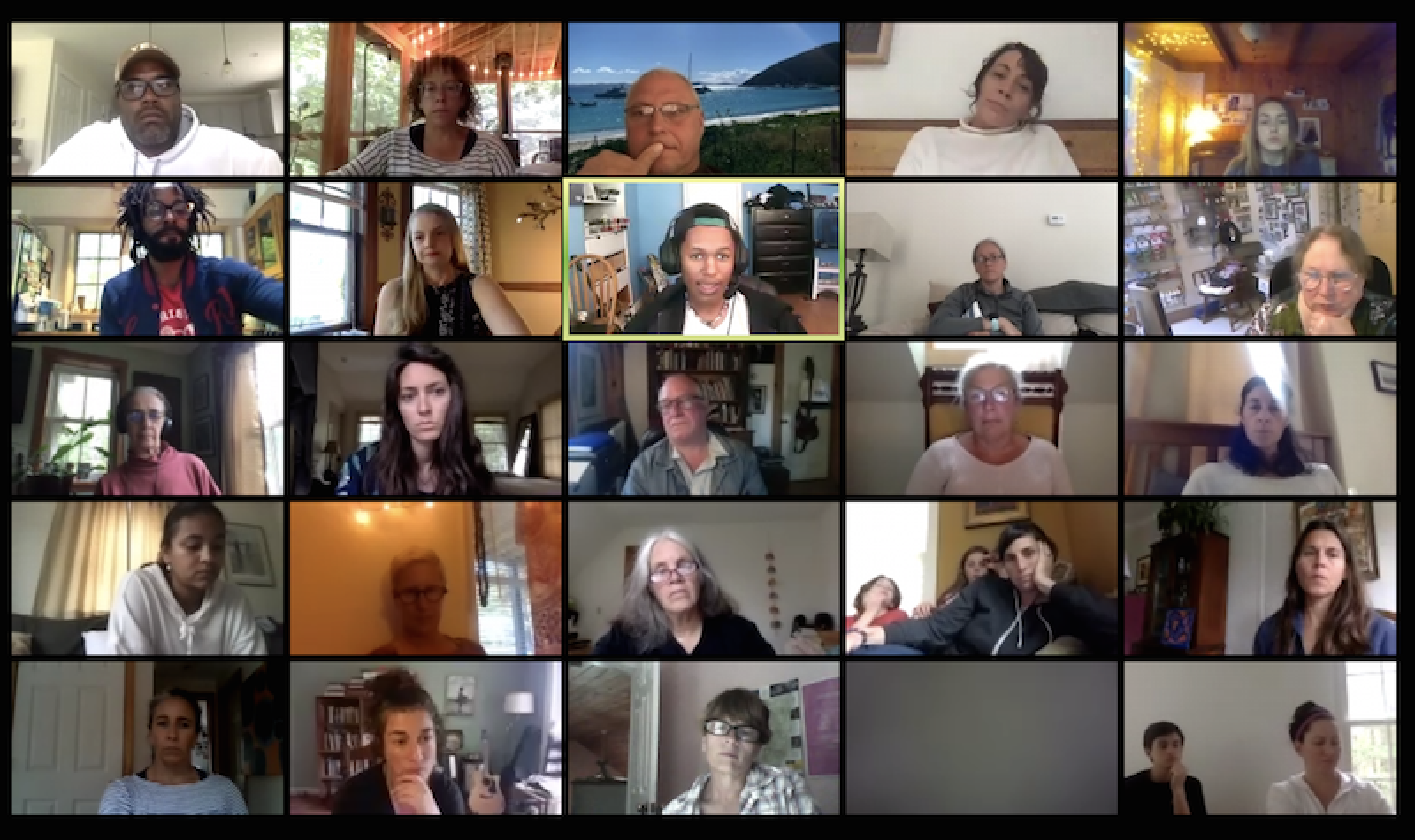Following a week that saw rallies around the world protesting police brutality and racial injustice, educators and community members on the Vineyard hosted a virtual panel Friday to discuss race, law enforcement and what it means to be an ally as a white person.
Nearly 100 people attended the forum, which was a collaboration between the Martha’s Vineyard Regional High School and the Martha’s Vineyard Public Charter School.
“Silence is the most deafening when it comes to issues of race and inequality,” wrote Dhakir Warren, administrator of student affairs at the regional high school, in a letter inviting all members of the community to attend. “Silence breeds more silence, inactions, indifference, and ignorance. We, as individuals who comprise a larger school community, can no longer be complicit in our silence.”
The panel was moderated by Mr. Warren and Amy Lilavois, adjustment counselor at the regional high school. Panelists included high school students Tripp Hopkins and Graysen Kirk, teachers Mathea Morais and Amanda Finizio, Oak Bluffs police chief Erik Blake, who is also president of the local NAACP chapter, and John Forte, a Grammy-award winning musician and social justice activist who lives on the Island.
Ms. Kirk, a freshman at the regional high school, organized Monday’s rally at Five Corners that drew more than 400 people. She was asked to talk about the experience and what it meant to her.
“Hearing the news about George Floyd, and seeing that horrific video, it was paralyzing because I felt like I needed to do something and I needed to help in some way... It was peaceful and it was meaningful and inspiring to see that wide range of youth come out,” she said.
“I think police and law enforcement play a big role in this, because this protest is about law enforcement. But something people don’t look at, too, is the criminal justice system. I think it’s easy for us to target the police, which they are obviously at fault, but there is a whole process behind it.”
At the outset of the forum Mr. Warren asked panelists to express their thoughts on the relationship between systemic racism and the public education system.
Ms. Finizio, who teaches eighth grade and is the anti-racism equity leader at Christa McAuliffe Charter School in Brighton, said she believes it is the responsibility of educators to fight back against the generational impact of racial injustice in the education system. As a history teacher, she said this would require deep examination into her own course material.
“I think the benefit of education, it is such a crucial tool for everybody... understanding the history of our culture, if we don’t understand that, we won’t understand how we got to where we are today,” she said.
Ms. Morais, who teaches at the charter school, said it will be vital for the education system to refrain from presenting a single narrative of the country’s diverse history.
She added that she has found it difficult to navigate a system that has been impacted by racially biased policy dating back generations.
“The proliferation of private schools in this country didn’t start to happen until after Brown vs. Board of Education . . . schools lost funding, people moved out, took their money with them and took their kids to private schools,” she said.
Mr. Hopkins, a senior at the regional high school, said it is especially important to reflect on how civil rights issues are presented in schools. He said many may leave the education system feeling as if the fight for civil rights has been successfully completed.
“White America isn’t as educated on civil rights issues as they thought they were,” he said. “That is why things like this are happening.”
The discussion then shifted toward police and their role in changing the culture of racism.
“What we need from law enforcement leaders is better hiring and police departments fitting the community you are serving,” Chief Blake said. “We need to be able to decertify police officers and we also need a culture to change in law enforcement so you are held as a hero when you knock that person off of someone’s neck... there has got to be that fundamental change in law enforcement.”
He said a big part of the problem is how police officers are trained.
“When I look at [police] academy curriculum across the state . . . they have a 30-hour block on how to shoot your gun, which hopefully you never have to do in your whole career, but you only have a three-hour block on how to interact with your community,” he said. “That is the change that needs to happen.”
Responding to questions from Mr. Forte, Chief Blake acknowledged that racism has estranged police departments from their communities. He said it is a problem that jeopardizes the entire judicial system, from the officers who enforce laws to the courts the enact them.
“The word is legitimacy,” he said. “We all as a society agree on laws that are passed by legislators, that the law is just . . . but not only does the law have to be just in everyone’s eyes, the people enforcing the law have to be legitimate.”
The discussion ended with a call to action from the panel members. Mr. Hopkins said for white community members, listening is the most important part of understanding the current social and political movement.
“To really sum it up, what I think white people should go through to understand racism, is be able to talk to African American people in the community and just listen to their stories,” he said. “Instead of going into that conversation with the mentality to debate, go into that conversation with the mentality that you are just trying to educate yourself.”





Comments (1)
Comments
Comment policy »